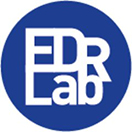
Here is an introduction to the program of the Digital Publishing Summit 2019: the exact timing of the presentations will soon be achieved.
Over the last ten years, as publishers worked through the growing pains of rapidly changing technology, books themselves didn’t change that much. A good story is still why we publish. But technology created new channels of distribution and propelled publishing to evolve storytelling across all media channels. Lisa Faith Phillips, CDO, China-US Women’s Foundation, will introduce to the audience the era of transmedia storytelling.
Digital market trends in Europe are particularly interesting this year, with audiobooks now becoming a serious competitor. Is our market becoming “format agnostic”, consuming text or audio with equal pleasure? Rüdiger Wischenbart is the person you would like to discuss the subject with and that’s great, as he will come to the Summit to present his new “European e-book barometer 2019”. As an appetizer, you can have access to the previous version of the barometer here.
The Japanese digital market is very different from the European one. Manga is a leading product there, with huge volumes and a rapid move from print to digital and the recent irruption of Webtoons from Korea. To foster innovation in the digital field, the Japanese publishing industry has partnered with the Keio University to create the Advanced Publishing Laboratory (APL), on the model of EDRLab. Shin Niina is COO of Media Do Holdings, the biggest e-distributor in Japan and a founder of the APL, Shiohama Daihei is CEO of the international branch of Media Do. They will describe in detail Japanese business models and digital evolutions in this fascinating market.
Market strategy in Europe is often influenced by political initiatives: Cristina Mussinelli, from AIE in Italy, will therefore present the upcoming impact of new EU regulations, especially the Accessibility Directive, on the publishing industry. Political initiatives must be backed up by tools: coming directly from India for the Summit, Avneesh Singh, DAISY CTO, will detail the current status of accessibility standards in publishing. Great achievements come through collaboration: Claire Leymonerie, from the French Ministère de la Culture, will present a national strategic plan for the development of an offer of digital books accessible to people with disabilities; an initiative where associations representing print disabled people, the publishing industry, public libraries, open-source developers and professional schools join their efforts, with the State offering coordination and support. Valérie Ferriere, president of Flexedo, will complete the panel and describe her experience in creating accessible EPUB 3 files.
The DPSE event is a major rendez-vous for those fond of innovation in the open-source domain. This year will be rich in this aspect, with presentations and demos of the latest achievements of the Readium community in different branches: web, mobile and desktop. The initiators of the new Readium Web project, Ketil Stadskleiv, CTO of Bokbasen and Andrew Rhomberg, founder of Jellybooks, will present how this emerging open-source Web app is used in Norway in an e-lending project and in different parts of Europe for supporting reader analytics for book publishers. Aferdita Muriqi and Daniel Weck, lead developers for EDRLab, will demonstrate the latest Readium iOS & Android test applications and the new EDRLab Thorium application based on the Readium Desktop toolkit. Finally, the Paged.js open-source software, great for preparing EPUB content for printing, will be presented by Julie Blanc, from the Paragraph Lab in Paris.
The benefits of an accessible mobile application for blind people will be demonstrated by Fernando Pinto da Silva, new president of DAISY France and Mattias Karlsson, product manager at Dolphin. The next phase for open-source reading apps will be to add helpers for dyslexic people; but which helpers? Luc Maumet will present the results of the study he pursued in Europe for EDRLab, to be included asap in the Thorium desktop application.
Readium LCP is now a reality worldwide: we will have an overview of the current deployment of the technology, a first-hand testimony of its current deployment in Canada by Jean-Philippe Bougie from DeMarque and Jean-François Cusson from Bibliopresto.ca, but also a presentation of the ease of setup of an LCP compliant solution in any country by Gavin Perry from Webqem.
EPUB and Web Publication are also on the spot this year. Ken Jones, director of Circular Software, will show how to push the boundaries of Fixed Layout EPUB, embedding Virtual Reality in a publication. Luc Audrain, Head of digitization at Hachette Livre, will convince the audience that the era of EPUB 3.2 production has arrived and that EPUB 2 can be safely buried. And Romain Deltour, from the DAISY Consortium, will demonstrate the brand new ACE GUI which makes validating EPUB accessibility a breeze. The work of W3C members on Web Publications is continuing and the current hot subject is the creation of an audiobook profile. We will present the state of this study, which could change radically the way audiobooks are structured.
Having a standard format for audiobooks is great, but what will change the life of many people is an easy way to listen to these stories using a smart speaker. EDRLab is working on a Google Home prototype developed for online audiobook libraries, and Pierre Leroux will show on stage how easy it is to chat with an audiobook service, but also the issues we are facing with such an emerging technology.
Digital visual narratives (digital comics, manga or bande dessinée depending the culture) are also a source of innovation at EDRLab. Webtoon, a digital-only product, is a huge success in Korea and now emerging in other countries (France especially); but Webtoons are a specific type of product, based on Web episodes and vertical scroll. We feel that there is an opportunity to create a more versatile digital product, easy to produce, reliable on multiple devices, easily distributed because based on an open format (“à la EPUB”) and providing fascinating features. Florian Dupas, founder of Kwalia, and Yohann LeScoul , author at Pika, will present the ongoing work on use cases, features and structuration; and the ease of creation of this new type of digital comics for authors.
Visual narratives are based on images; a very interesting initiative in the library world named IIIF (international Image Interoperability Framework) has for explicit goal to enable richer access to the World’s Images; standardization efforts in the publishing industry may take advantage at knowing more about this initiative. Emmanuelle Bermes, from our host the BnF, will present the benefits of IIIF for an enhanced interoperability between digital libraries.
There are plenty of buzzwords when speaking about innovation. Machine learning and blockchain are particularly vivid today, but we still find impressive projects that demonstrate an effective use of these technologies. Vincent Wartelle, CEO of ISI, will present the first results of an AI based software able to automatically extract well-structured content from badly-structured fixed-layout EPUBs. Gregorio Pellegrino will show how the association LIA is evaluating AI technologies capable to improve the accessibility of EPUB files via automatic image description.
There is a very interesting project in our industry using a blockchain, its name is the Content Blockchain Project. This project has just received a “Digital Publishing Award” in Germany, and its promoter Sebastian Posth will present its building blocks, the ISCC content identification system and the associated blockchain managed smart licenses.
The event will be concluded by Virginie Clayssen, President of EDRLab.
Participants and speakers will have lively exchanges during breaks, the two lunches and a cocktail organized near the BnF at the end of the day, on June 25th.





 contact@edrlab.org
contact@edrlab.org +33 1 83 64 41 34
+33 1 83 64 41 34
